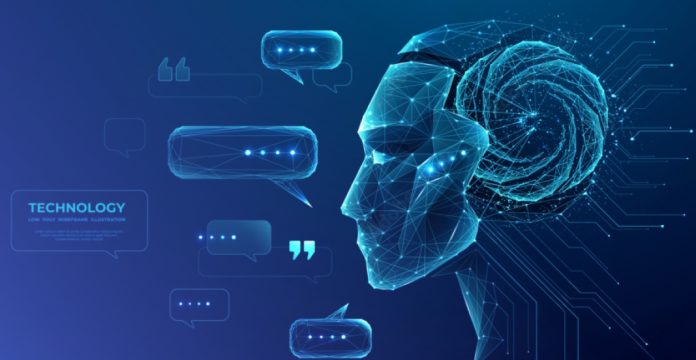
The technology field is constantly evolving, and the integration of chatbots in DevOps has revolutionized how teams collaborate and operate. DevOps, the practice of combining software development and IT operations, is about improving software delivery’s speed, quality, and efficiency.
On the other hand, chatbots are artificial intelligence-powered programs that can automate tasks, respond to user requests, and provide real-time information.
In this blog, we will explore the role of chatbots in DevOps and how they are being used to improve collaboration, automation, and user experience.
We will also discuss the benefits, key features, case studies and future o along with the challenges and considerations in implementing chatbots. Finally, we will delve into the future of chatbots implementation in DevOps and what advancements can be expected.
What is DevOps?
DevOps is a software development approach emphasizing collaboration, communication, and integration between software development and IT operations. It aims to enable organizations to deliver software faster, with higher quality and reliability, by breaking down silos between development and operations teams.
DevOps integrates people, processes, and technology to automate and streamline the software delivery process from development to production. It emphasizes using automation, continuous integration, continuous delivery (CI/CD), monitoring, and testing to improve software delivery’s speed, efficiency, and quality.
What are Chatbots?
A chatbot is a computer program designed to simulate conversation with human users, especially over the Internet. Chatbots are powered by natural language processing (NLP) and machine learning algorithms, allowing them to understand and respond to user requests in a human-like manner.
Chatbots can be integrated into various platforms and applications, such as websites, messaging apps, and virtual assistants. They can automate routine tasks, provide real-time information, and improve the user experience by providing fast and convenient access to information and services.
Chatbots can be programmed to perform a wide range of functions, such as customer service, sales, and marketing. They can also be integrated into workflows to streamline and automate processes, freeing time for human employees to focus on more complex tasks.
With the rise of AI and NLP technologies, chatbots have become an increasingly important tool for businesses looking to improve efficiency, enhance customer experience, and streamline operations.
Chatbots in DevOps: Unveiling the Relationship
The relationship between DevOps and chatbots is based on automating processes and improving efficiency. DevOps aims to streamline the software delivery process and make it faster, more reliable, and more efficient. On the other hand, chatbots automate routine tasks, provide real-time information, and improve the user experience.
By integrating chatbots into DevOps workflows, organizations can automate routine tasks, such as incident management and monitoring, freeing time for human employees to focus on more complex tasks.
Chatbots can also provide real-time information to developers, such as the status of builds, deployments, and tests, allowing them to identify and resolve issues quickly.
In addition, chatbots can gather data and provide insights into DevOps processes, allowing organizations to make data-driven decisions. This can help organizations identify bottlenecks, improve processes, and enhance the overall quality of their software systems.
Integrating chatbots into DevOps workflows can help organizations improve efficiency, enhance the quality of their software systems, and improve the overall user experience.
The use of chatbots in DevOps has several benefits, including:
- Improved Efficiency: Chatbots can automate routine tasks, such as incident management and monitoring, freeing time for human employees to focus on more complex tasks. This can result in faster problem resolution and improved overall efficiency
- Enhanced User Experience: Chatbots can provide real-time information to developers, such as the status of builds, deployments, and tests, allowing them to identify and resolve issues quickly. This can result in a better user experience and improved overall satisfaction
- Data-driven Decision-making: Chatbots can gather data and provide insights into DevOps processes, allowing organizations to make data-driven decisions. This can help organizations identify bottlenecks, improve processes, and enhance the overall quality of their software systems
- Increased Collaboration: Chatbots can be integrated into communication tools, such as Slack and Microsoft Teams, allowing developers to access information and services without leaving their work environment. This can result in improved collaboration and communication among teams
- Improved Scalability: Chatbots can be scaled easily to accommodate growing demands, allowing organizations to meet the needs of their users without incurring high additional costs
Using chatbots in DevOps can help organizations improve efficiency, enhance the quality of their software systems, and improve the overall user experience. By automating routine tasks and providing real-time information, chatbots can help DevOps teams focus on more complex tasks and drive continuous improvement.
DevOps is a software development approach that aims to improve collaboration and communication between development and operations teams. It also emphasizes the automation of processes to increase efficiency and reduce errors.
Chatbots are becoming increasingly popular in DevOps, as they can provide numerous benefits to DevOps teams.
Following are some of the key features of chatbot integration in devops:
Automated Task Management
Chatbots can automate repetitive and time-consuming tasks, such as issue tracking and status updates. This allows DevOps teams to focus on more important tasks, improving overall efficiency and productivity
Improved Collaboration
Chatbots can be integrated into collaboration tools like Slack, Microsoft Teams, and others, making it easy for DevOps teams to communicate and share information in real time. Chatbots can also be used to provide updates and notifications, keeping everyone informed and on the same page
Enhanced Monitoring
Chatbots can be integrated with monitoring and log management tools, allowing DevOps teams to receive notifications and updates about the health and performance of their systems. This can help teams quickly identify and resolve any issues that arise, reducing downtime and improving system reliability
Streamlined Deployments
Chatbots can automate deployment processes by releasing code updates and deploying infrastructure changes. This can help DevOps teams to quickly and easily make changes to their systems, reducing the time required for deployments and improving overall efficiency
Improved Error Detection and Resolution
Chatbots can be integrated with error tracking tools, allowing DevOps teams to identify and resolve system errors quickly. This can help teams quickly identify and resolve issues, reducing downtime and improving system reliability
Increased Traceability using Chatbots in DevOps
Chatbots can provide a complete audit trail of all actions and changes made to a system, allowing DevOps teams to track changes easily and understand the impact of any changes. This can help teams quickly resolve any issues that arise and improve overall transparency and accountability
It also results in improved collaboration, enhanced monitoring, streamlined deployments, improved error detection and resolution, and increased traceability. By leveraging the power of chatbots, DevOps teams can improve their processes and become more efficient, reliable, and effective.
Enroll in Invensis Learning’s DevOps Certification Courses and gain mastery in Chatbot integration in Devops!
Challenges and Considerations in Implementing Chatbots in DevOps
Following are the challenges and considerations that organizations must keep in mind when implementing chatbots in DevOps:
Data Security and Privacy
The use of chatbots involves handling sensitive data, such as user credentials and other confidential information. Organizations must ensure that the chatbots are secure and comply with data protection laws and regulations.
Human Intervention
In some cases, chatbots may not be able to handle complex queries or issues, and human intervention may be required. Organizations need to have a contingency plan in place to ensure that these issues are resolved quickly and efficiently.
Natural Language Processing
While chatbots can understand and respond to human language, they can still have difficulty interpreting complex requests and commands. Organizations must ensure that their chatbots have the necessary language processing capabilities to support DevOps processes effectively.
User Adoption
Chatbots can be a new and unfamiliar technology for many DevOps teams, and there may be resistance to their adoption. Organizations need to ensure that they provide adequate training and support to help teams adopt and effectively use chatbots in their DevOps processes.
Cost
Implementing chatbots in DevOps can be expensive, particularly for organizations that must purchase and integrate multiple tools and technologies. Organizations must carefully consider the costs associated with implementing chatbots and weigh them against the potential benefits.
Customization
Customizing chatbots to meet the specific needs of organizations can be complex and time-consuming and requires specialized skills and expertise. Organizations must ensure that they have the resources and expertise in place to customize their chatbots effectively.
Organizations must carefully consider these challenges and considerations when implementing chatbots in DevOps. In addition, they must have a well-defined strategy to implement the technology successfully and deliver the desired benefits.
Case Study of implementation of Chatbots in DevOps
GE Digital:
One example of a successful implementation of chatbots in DevOps is at GE Digital, a subsidiary of General Electric. They developed a chatbot named “Riley” to help streamline their software development and deployment processes.
Riley was integrated into GE Digital’s DevOps toolchain and was used to automate repetitive tasks and provide real-time updates to developers. The chatbot responded to questions about the status of deployments, provided notifications about the status of builds and tests, and assisted with the deployment of code to production environments.
The implementation of Riley resulted in several benefits for GE Digital.
First, it improved communication and collaboration between developers, reducing the time it took to resolve issues and deploy code.
Second, it reduced the workload on developers by automating repetitive tasks, freeing up time for more strategic initiatives.
Finally, it improved the overall efficiency of the software development process, leading to faster time-to-market for new products and services.
Overall, this case study demonstrates the potential for chatbots to have a positive impact on DevOps processes. By leveraging artificial intelligence and machine learning technologies, chatbots like Riley can help organizations streamline their workflows and achieve faster, more efficient software development and deployment.
Future Trends and Advancements in Chatbot Technology for DevOps
The use of chatbots in DevOps is rapidly growing, and the technology behind them is constantly evolving. Some future trends and advancements in chatbot technology for DevOps include:
- Artificial Intelligence (AI) Integration: As AI becomes more advanced, chatbots in DevOps are likely to become more intelligent and capable of handling more complex tasks
- Natural Language Processing (NLP): NLP technology is improving, allowing chatbots to understand and interpret human language better. This will lead to more natural and intuitive interactions between chatbots and DevOps teams
- Multi-channel Support: Chatbots will increasingly be integrated into multiple channels, including messaging platforms, voice assistants, and mobile apps. This will provide DevOps teams with greater flexibility and accessibility to their chatbots
- Automation: Using chatbots in DevOps will continue to automate manual tasks and reduce the workload on DevOps teams. This will free up time and resources for more strategic and impactful initiatives
- Integration with Other DevOps Tools: Chatbots will become more integrated with other DevOps tools, such as testing and deployment tools, to provide a more comprehensive DevOps solution
As technology advances, the role of chatbots in DevOps is likely to expand and evolve. By embracing these trends and advancements, DevOps teams can improve efficiency, productivity, and collaboration, ultimately leading to better outcomes for their organizations.
Conclusion
Chatbots have become an integral part of DevOps and have the potential to revolutionize the way teams collaborate and communicate. They automate routine tasks, reduce manual errors, and increase efficiency by providing quick access to critical information and resources.
Additionally, chatbots allow teams to work faster and more collaboratively, which can help organizations to achieve their goals more effectively. Chatbots are a valuable tool for DevOps teams and can help organizations to streamline their work processes, increase efficiency, and improve collaboration.
Furthermore, by embracing chatbots, organizations can stay ahead of the curve and position themselves for success in today’s fast-paced, technology-driven world.














